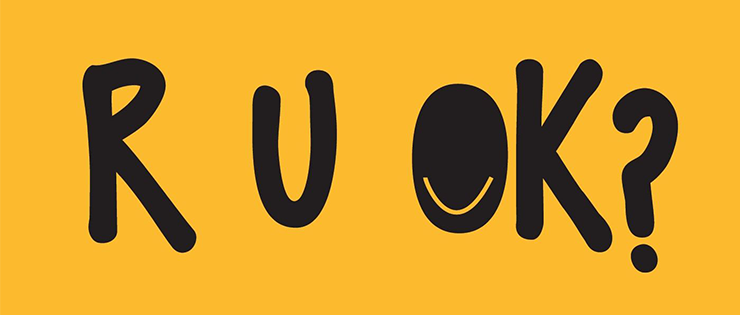
Monday September 10 was World Suicide Prevention Day. Sadly, just here in Australia, 8 people will have taken their lives on that day; and another 8 people will take their lives each and every day throughout the year.
If that weren’t bad enough, for every one of these people who takes their lives approximately another 20 make an attempt to take their lives. Think about it; 20 people, each and every day, so desperately distressed and feeling so hopeless that they’re struggling to find a reason to keep living.
Many years ago, I was one of these people. I made two attempts on my life and over the ensuing years I’ve had suicidal thoughts many hundreds of times. In my experience, one of the crucial factors, just as bad if not worse than the oppressing and unbearable pain of my depression, was the feeling of isolation and loneliness. I thought, and many of those to whom I’ve just referred would also have thought, that I was the only one experiencing this and that I was all alone in having to deal with it.
For reasons like this, “R U OK? Day” was established almost 10 years ago. You can read more on their website about the inspirational founders of what’s become an amazing movement but in short, what we all need to understand is that we’re not alone. We’re not alone in our suffering; and we’re not alone even if we’re thriving and flourishing. Those who’re doing well psychologically can play a crucial role helping those who’re not doing so well.
And all it takes, to begin with, anyway, is one simple question.
ARE YOU OKAY?
Obviously, it can take more than this one simple question to save or change a life; the significant psychological distress experienced by one in four, or even one in three people won’t magically disappear just because a friend, family member or colleague has expressed some concern. But it can start a vitally important conversation that will lead the person in need to take some form of constructive action, such as seeing a professional, and that can then lead to real and meaningful improvement.
Because here’s the thing – support and love are out there; and effective treatments do exist. So, if you’re experiencing depression or anxiety, hopelessness or helplessness, you’re not alone, and hope that things can get better is a realistic belief.
Now despite the apparent simplicity of the aforementioned question, “R U OK?”, and despite the wonderful success of the “R U OK? Day” movement in recent years, the reality is that even now, too few people ask the question. In my experience, there are at least two reasons for this: (1) they’re afraid asking will make things worse, and (2) they’re afraid they’ll ask in the wrong way!
Firstly, the belief that asking someone if they’re OK, or directly asking about self-harm, will increase the likelihood of further distress or suicide is not correct. In fact, the research suggests that showing you care, and starting a constructive conversation is undoubtedly helpful; increasing the likelihood the person will seek professional assistance.
Secondly, if you’re not sure what to say don’t worry too much about it! Just be honest and authentic and genuine; just use your own words and show that you care. You can find some great tips and resources on the RUOK Day website; but what’s most important is that you ask in a way in which you feel comfortable. You don’t have to be a psychologist or mental health professional. You just have to be a caring friend; a friend who’ll ask what might be the most important question you’ve ever asked; a friend who’ll listen, encourage positive action, and a friend who’ll then check in at an appropriate time in the near future.
Not everyone suffering mental ill-health will be curled up in a corner or tucked under their doona. Many more, in fact, will be sitting beside you on the bus or train, at work, or chatting to you over coffee or lunch. Take a minute, then, to ask ALL your friends and family, your colleagues and acquaintances if they’re OK today; it won’t take up much of your time and I guarantee it won’t be something you regret.